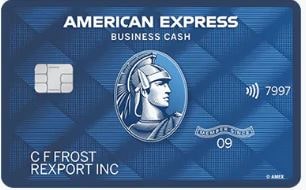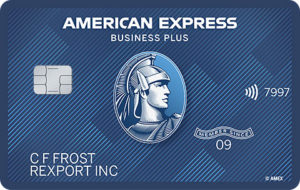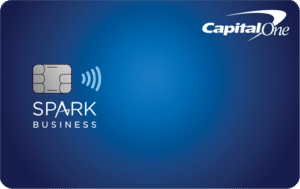Driving for a ridesharing app like Uber or Lyft or a food delivery app like DoorDash or Instacart. Working as a writer or graphic designer for hire. Teaching English online in your spare time. These are among the most popular side gigs and freelance opportunities for people looking to earn extra income.
These solopreneurs count as self-employed individuals — small-business owners, technically — and are typically eligible for many small-business credit cards. This is true even for those with no plans to turn their side business into a full-time enterprise.
What follows is a list of the best credit cards for freelancers and side hustlers hoping to earn rewards for business-related purchases and raise their business credit score in the process.
Best Credit Cards for Freelancers & Side Hustles
The best small-business credit cards for freelancers, sole proprietors, and side hustlers pair modest annual fees — if they have annual fees at all — with generous rewards programs whose bonus categories favor general spending or a broad range of everyday business expenses.
Many also have attractive sign-up bonuses — also known as welcome offers, welcome bonuses, or early spend bonuses, depending on the issuer. And all accept personal guarantees from applicants, which means you can apply using your personal credit score. This is very useful if you don’t have any business credit history (or you haven’t formally incorporated your freelance business at all).
Chase Ink Business Unlimited® Credit Card
Chase Ink Business Cash® Credit Card
The American Express Blue Business Cash card
The Blue Business® Plus Credit Card from American Express
Capital One Spark Cash Plus
Capital One® Spark® Miles for Business
Capital One® Spark® Cash Select for Excellent Credit
Capital One® Spark® Cash Select for Business for Good Credit
Methodology: How We Choose the Best Credit Cards for Freelancers & Side Hustlers
If you’re a freelancer or sole proprietor in the market for a credit card to cover professional expenses, you need to consider many of the same factors owners of (slightly) larger enterprises do when shopping for small-business credit cards. These are the most important criteria that we use to separate the best freelancer-friendly credit cards from the rest.
Personal Guarantee Requirement
Many freelancers and side hustlers aren’t formally incorporated and have no desire to be. Because they have no “business” in the technical sense, they have no business credit. They can’t get approved for business credit cards that don’t accept personal guarantees.
For this reason, a missing personal guarantee requirement is a deal-breaker. All the cards on this list accept personal guarantees or offer ways around them, like guarantees based entirely on business revenue rather than credit.
Credit & Income Qualification Requirements
Most credit card issuers require applicants to back up their personal guarantee (or business guarantee) by meeting certain credit and income standards. For premium business credit cards, these standards can be high — effectively out of reach of the typical freelancer or side hustler.
So we look for freelancer-friendly credit cards with more relaxed qualification standards. Most of the credit cards on this list set minimum FICO scores near 700, but they’re not as picky as top-shelf business cards and don’t ask applicants to prove they’re pulling in tens of thousands of dollars a month on top of that.
Rewards Program
Every card on this list has an above-average rewards program. When evaluating these programs, we look for cards that do one of two things:
- Earn higher returns on common business purchases, such as office supplies and telecommunications
- Earn an above-average flat rate of return (1.5% or above) on most or all eligible purchases
We rule out cards that only earn rewards on certain purchases or ask you to jump through too many hoops (like activating your cash back before each purchase).
Welcome Offers for New Cardholders
Most of the cards on this list have spending-based welcome offers (aka sign-up bonuses) that increase their rewards programs’ appeal. We intentionally exclude cards with uncomfortably high spending requirements — a $3,000-per-month pace or above. The remaining offers’ spending requirements are realistic for many if not most freelancers.
Other Business Benefits
Freelancers have less use for common business credit card benefits like Amazon Web Services credits and Salesforce integrations, but all else being equal, we prefer cards that offer the option. And some business credit card benefits are legitimately freelancer-friendly, like discounts on popular bookkeeping software.
Interest Rate & Introductory APR Promotions
We don’t advise anyone to carry a credit card balance if they can avoid it, but business owners — including sole proprietors — sometimes have no other option. With that in mind, we look for freelancer-friendly cards with low ongoing interest rates and long 0% APR introductory promotions.
Annual Fee
All else being equal, we prefer professional credit cards without annual fees. However, committed freelancers can offset more modest annual fees (under $100) without too much trouble, so this list isn’t entirely annual-fee-free.
Credit Card FAQs for Freelancers & Side Hustlers
Finding and applying for a freelancer-friendly credit card isn’t too much different from the process for consumer cards. Once in your hands, these cards work more or less the same as consumer cards too. But if it’s your first time, you might still have questions as you work through the process.
Do You Need to Incorporate to Get a Professional Credit Card?
Not necessarily. Freelancer-friendly credit cards generally don’t ask applicants to prove they’ve formally incorporated their business. This is a good thing for part-time freelancers who don’t want the headache (and added cost) of managing a legal business entity.
By contrast, some small-business credit cards do require formal incorporation. Those cards don’t make this list.
How Much Can You Spend on a Professional Credit Card?
It depends on two factors: whether the card has a preset spending limit, and if so, the limit’s dollar value.
Some business credit cards have no preset spending limits, including some we consider freelancer-friendly. To prevent runaway spending, these cards usually have a pay-in-full requirement, so you can’t charge more than you can afford to repay (for long, anyway). If your freelance business is thriving, these no-limit, pay-in-full cards usually offer better spending power.
Other business credit cards base spending limits on revenue. This is more common for cards that underwrite based on business credit, but if you’ve been freelancing for a while and can show consistent income, you might qualify for a generous credit limit without a business credit score.
Do Freelancer-Friendly Credit Cards Allow Personal Guarantees?
They should if they want to be on this list. Some freelancers have incorporated business entities of their own, but many don’t. This means they can’t get a business credit card that doesn’t accept personal guarantees.
Does Your Professional Credit Card Affect Your Personal Credit Score?
If you qualified using your personal credit and income, yes.
This effect can be positive, negative, or both at different times. If you use your professional credit card responsibly, your personal credit score could increase over time. If you bump up against your credit limit or miss payments on your professional credit card, your personal credit score could suffer.
What’s a Good Annual Fee for a Professional Credit Card?
The most freelancer-friendly credit cards waive annual fees altogether. However, cards with unusually generous rewards programs or perks generally charge annual fees. If you spend enough to offset these fees by earning rewards and net more than you would have with a no-annual-fee alternative, it’s worth the cost.
Final Word
Because freelancers and side hustlers are eligible for many credit cards traditionally marketed to small-business owners with employees or contractors on the payroll, this list overlaps considerably with our overall list of the best credit cards for small-business owners.
The lists aren’t identical, however.
Some of the top cards for small businesses, such as the Chase Ink Business Preferred® Credit Card and the Amex Business Platinum Card, aren’t ideal for part-time entrepreneurship or freelance work due to some combination of high annual fees, strict credit underwriting requirements, and welcome offers that require heavier spending than most side hustlers can manage.
That’s not to say those cards don’t appeal to unusually prolific side hustlers.
If you’re fortunate enough to be able to scale your side business into a full-time enterprise with a balance sheet to match, you might find yourself in search of a credit card with a credit limit to meet your spending needs. When that day comes, you’ll be only too happy to trade up.








